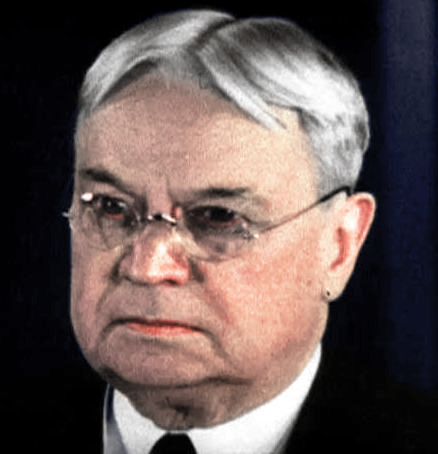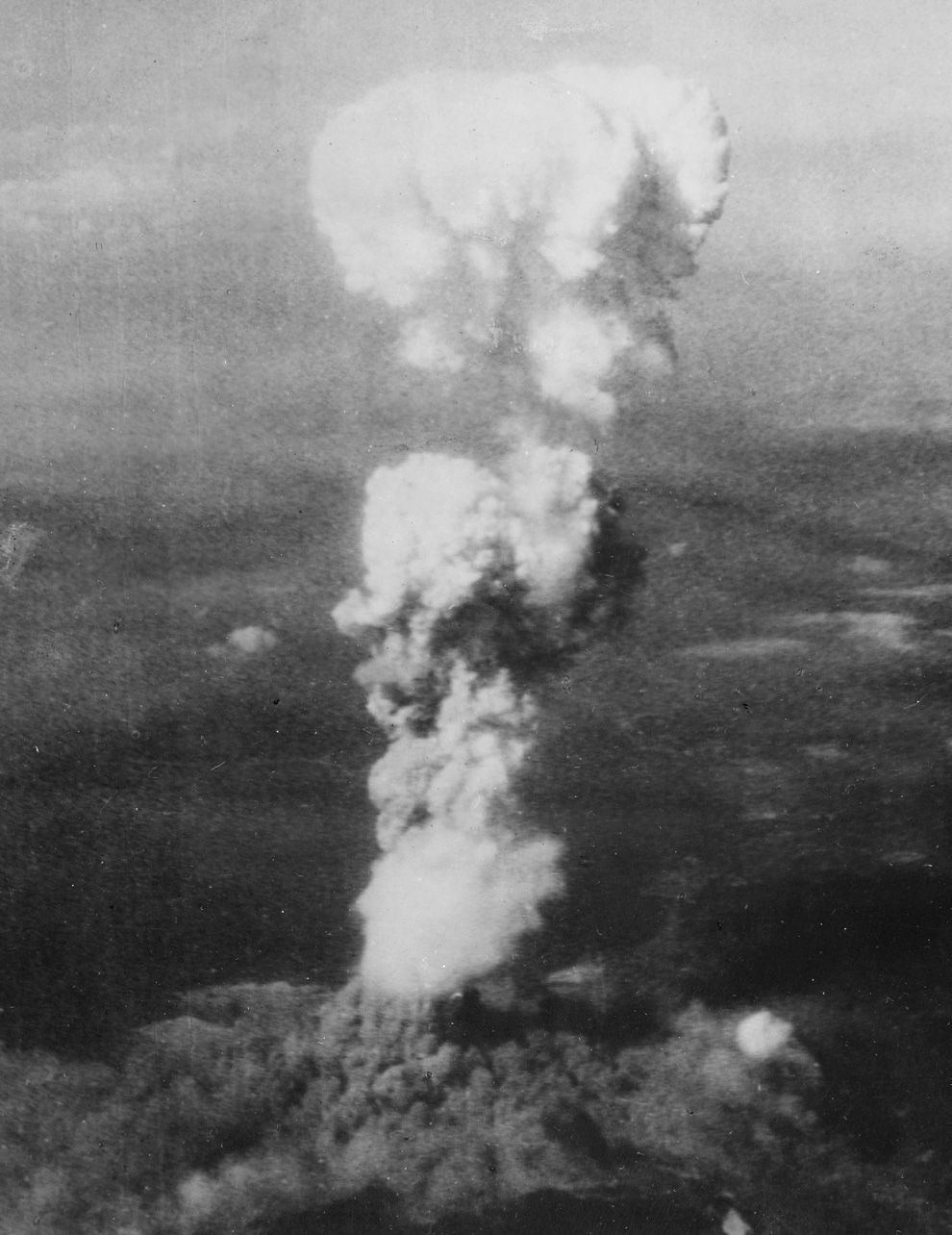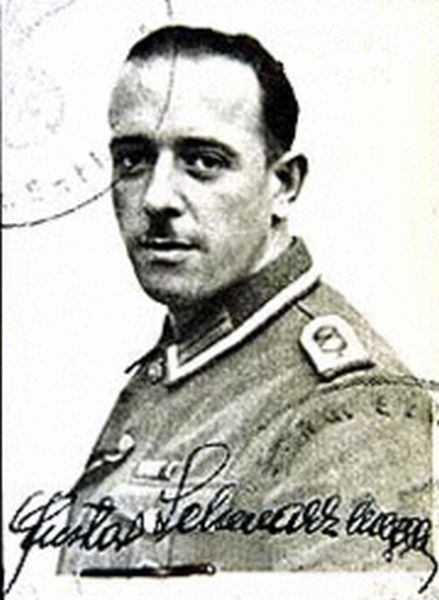
In the subject which is now being debated by the Senate there have been more uncomplimentary expressions by the members of the national administration than upon any other subject during my long term in office. Commencing a few years ago the expressions of the President were perfectly clear, and apparently, frank. And I may remark parenthetically that the Neutrality Bill, which has been kicked about like a football by the administration men, was an administration measure, concurred in alike by the President and the Secretary of State, when first it was before the Congress, and by both of them jammed through the legislative body. It was their measure, acclaimed by them, praised by them, and for some years pointed to with pride by both, as one of their great achievements. It is but fair, therefore, that during any discussion of the measure now pending before the Senate to remember that the Neutrality Bill was a measure, approved by the Secretary of State, fought for by both departments, and passed finally as the crowning glory of the administration. It is only now after all the years of praise and panegyrics the bill is held up to our people as a monster that hampers and prevents the full exercise of the strength of the nation and of the good right arm of the President.
No law has come before the Senate with such a singular history as the Neutrality Bill. No measure has been so vilified and abused as this Neutrality Law; and the ills that will result from our failure to eliminate it from the statute books are so manifold, so terrible in their consequences, so say our interventionists, that all of us shudder to think that this beneficent measure, that has been so long a law of the land, and has met with such universal acclaim, suddenly has changed and become an instrument without merit, and if we aren’t watchful, will bring ruin on our country.
Let us look for just an instance at the repeated promises made by the President in relation to his specific intentions, and as we proceed we can see how those specific intentions finally grew into the monster they have become – a monster that threatens the peace of this land and its very existence. I pass the earlier statements that “the definite policy of the United States from now on is one opposed to armed intervention” in December 1933, and that of 1934 that he has “made it clear that the United States cannot take part in political arrangements in Europe.” Why, he talked then like a wicked isolationist – whatever that means. Shame on him!
In June 1935, he said:
As a nation, we have been fortunate in our geographic isolation, which in itself has partially protected our boundless resources. It is in full appreciation of our advantageous position and of our own devotion to the cause of peace that our nation’s defensive system has always reflected the single purpose that that name implies.
In October of that year, he reiterated his doctrine:
The American people can have but one concern and speak but one sentiment: Despite what happens in continents overseas, the United States of America shall and must remain, as long ago the Father of our Country prayed that it might remain, unentangled and free.
As President of the United States, I say to you most earnestly once more that the people of America and the government of those people intend and expect to remain at peace with all the world.
I have pledged myself to do my part in keeping America free of those entanglements that move us along the road to war.
How about these sonorous sentiments? I can almost hear a distressed isolationist again talking.
And on our Armistice Day, 1935, he said:
The primary purpose of this nation is to avoid being drawn into war.
The new generation, unlike us, have no direct knowledge of the meaning of war. They are not immune to the glamor of war… Fortunately, there is evidence on every hand that the youth of America, as a whole, is not trapped by that delusion. They know that elation and prosperity which may come from a new war must lead – for those who survive it – to economic and social collapse more sweeping than any we have experienced in the past.
America must and will protect herself. Under no circumstances will this policy of self-protection go to lengths beyond self-protection.
Oh, Oh, Oh – his recent proclamation and messages are the reverse. We will forgive him because though he doesn’t know it, an isolationist is one who believes in the isolation of war, unless necessary for our defense.
In January 1936, he said again:
The United States and the rest of the Americas can play but one role: through a well-ordered neutrality to do naught to encourage the contest, through adequate defense to save ourselves from embroilment and attack, and through example and all legitimate encouragement and assistance, to persuade other nations to return to the ways of peace and good will.
Within democratic nations the chief concern of the people is to prevent the continuance or rise of autocratic institutions that beget slavery at home and aggression abroad.
In August 1936, he made his remarkably eloquent speech at Chautauqua, and said:
We shun political commitments which might entangle us in foreign wars; we avoid connection with the political activities of the League of Nations.
I wish I could keep war from all nations; but that is beyond my power. I can at least make certain that no act of the United States helps to produce or to promote a war.
We are not isolationists except as we seek to isolate ourselves completely from war.
And that there should be no mistake about his motives, in October 1936 he said, at Wichita, Kansas:
We have sought for security from war with other nations. We propose, of course, no interference with the affairs of other nations.
In October 1937, at Madison Square Garden, he re-emphasized his foreign policy in these words:
The nation knows I hate war, and I know that the nation hates war. I submit to you a record of peace.
Today there is war and rumors of war. We want none of it. But while we guard our shores against threats of war, we will continue to remove the causes of unrest and antagonism at home which might make our people easier victims to those for whom foreign war is profitable. Those who stand to profit by war are not on our side in this campaign.
In October 1939, there came a change o’er the spirit of his dreams and while he was yet saying the same words, his words apparently meant something else.
In October 1940, he got back to the right road and said with emphasis at Philadelphia:
We are arming ourselves not for any foreign war. We are arming ourselves not for any purposes of conquest or intervention in foreign disputes. I repeat again that I stand on the platform of our party: We will not participate in foreign wars and will not send our Army, naval, or air forces to fight in foreign lands outside the Americas except in case of attack.
It is for peace I have labored; and it is for peace that I shall labor all the days of my life.
In the same month at New York, he said regarding neutrality, as follows:
By the Neutrality Act of 1935, and by other steps, we made it possible to prohibit American citizens from traveling on vessels belonging to countries at war. Was that right? We made it clear that American investors who put their money into enterprises in foreign nations could not call on American warships or soldiers to bail out their investments. Was that right?
We made it clear that ships flying the American flag could not carry munitions to a belligerent, and that they must stay out of war zones. Was that right?
And at Boston in 1940, he gave his very solemn assurance to the fathers and mothers of the land in these words:
And while I am talking to you, fathers and mothers, I give you one more assurance – I have said this before, but I shall say it again and again and again – your boys are not going to be sent into any foreign wars.
They are going into training to form a force so strong that, by its very existence, it will keep the threat of war far away from our shores. Yes; the purpose of our defense is defense.
And in announcing his policy at Cleveland, November 1940, he said:
We know that we are determined to defend our country, and, with our neighbors, to defend this hemisphere. We are strong in our defense.
The first purpose of our foreign policy is to keep our country out of war.
Senator Pittman, who was the right-hand of the President, and chairman of the Foreign Relations Committee up to the time of his death, had this to say in October 1939:
Mr. President, we should not allow the repeal of the law which protects our country in time of war. We should not allow our citizens to sail on belligerent passenger vessels. Whether they are killed legally or illegally on such vessels, when they are killed it arouses a war spirit in this country. We should never let that happen again. We should make it a permanent policy that our merchant marine shall not be armed when engaged in foreign commerce, because it invites destruction by submarines, prevents search on the surface, and makes defense practically impossible.
No one here desires to take the same chance again.
This was the policy then. It should be the policy now, and until repealed it is the policy of the United States. Just think of it!
We should not allow our citizens to sail on belligerent passenger vessels. We should make it a permanent policy that our merchant marine shall not be armed when engaged in foreign commerce, because it invites destruction by submarines, prevents search on the surface, and makes defense practically impossible.
This is exactly what is sought to be done now. If ever a policy of a Chief Executive was made plain it was made so by the words of the President of the United States. There was no ambiguity about these words, and unless they were intended for the purpose of deceiving our people, the people had the right to rely upon them. I make this statement calmly and without emphasis, and present its justification in the expressions I have quoted, and in those which are vivid in our memories, which time precludes me from specifically presenting. The recent words of the President can be taken in but one sense, that of making war. To take the last remnant of strength from the Neutrality Bill, and remove the inhibition which exists against our ships going into danger zones, means, if it means anything, war.
All citizens who are not besotted by love of some foreign country can read them themselves and see themselves exactly the position of our Chief Executive. I cannot and I would not, attempt it. Each man, for himself, must determine this; each individual must decide for himself. It makes little difference to me because there are not many more years of service that I can render or for which I shall survive, but so long as I live, and am a sentient being I shall stand up just as an American, let the abuse be what it may, and fight as well as God has given me the ability to fight, with every fiber of my being for my country.
After the utterances which I have quoted came what is called the Lease-Lend Bill, a bill which surrendered a large part of the authority yet left to the Congress, and by which we gave ample authority to the President to do what he pleased with the property of the United States. Nobody objects within appropriate limits aid to Great Britain; nobody would deny that country in its extremity such assistance as may be legitimately required; but to make our assistance dependent upon how we aid Russia is a very different thing. If when the Lease-Lend Bill was before the Senate there had been a suggestion of this the author would have been laughed to scorn. It was only the exigencies of warfare which finally transmuted Russia from an ally into an enemy of Hitler that made it possible. Now the greater part of our relief is being sent to aid Russia, something never contemplated until Hitler declared war on Russia, and until the Russian mission, strutting about our airplane factories came here and demanded certain aid. I wish that there were time for me to touch upon this subject tonight, but I lack the time. Does anybody believe that if bloody Joe Stalin were successful in his war with Hitler we would go “scot free.” Neither one can be trusted, and each has been guilty of that treaty breaking, concerning which our departments hold up their hands in horror until they determine which side is likely to be successful.
And here comes into play the fate of the little country, which throws the calcium light of publicity upon the ethics of Great Britain and ourselves. Finland was the only country on earth that honored her obligations, that did not welsh upon her debts, and that paid regularly as the months rolled 'round. Finland was the only country who was always our friend, and I well remember the gatherings that were held in the city of Washington when the very mention of Finland led to bursts of applause. I remember when the first aggression of Russia was made upon her sovereignty, how the little country bravely fought to prevent it. I recall very vividly the situation in which she found herself at the beginning of this war, when she hoped to recover, with the aid of Nazi Germany, the country she had been deprived of by Russia. I could not find it in my heart to blame this little nation, but I saw, with indignation, Britain bombing her ports; and then, just the other day, our country, the great United States, filled with such yearning to aid small nations, and rescue them from tyrants, sternly notify her she must cease her warfare upon Russia or lose the friendship of our country.
War is a terrible thing that can pardon and condone such actions; and it is an awful thing in its consequences. Little Finland, of necessity, must yield.
It is as plain as night follows day we’re on the brink of war. By deceit and subterfuge we have been carried to this position today. There no longer can be any doubt concerning it. What do you want, my fellow countrymen – peace or war? It is not a question of deceiving ourselves because we never have been in war up to this time. All the perfervid oratory, yaps and yaps about the defense of our land pale into insignificance when the facts are examined. There isn’t a single expert who sees that we can be successfully invaded. There isn’t a single military man who even claims there is the remotest possibility of success in an attempt to invade us. If this were not so a year ago, the hope of the invader has faded since the Russian campaign. We may take it as absolute that danger in that direction has passed. While, of course, I would do everything that may be necessary in the way of defense I would do it upon the theory of protecting our country from any eventuality, and not because I fear any invasion.
The propaganda has been so extraordinary and our people have been so crowded with misrepresentation and lies that it is no wonder they are unable to see the true facts. They should remember we have not been at war, and we are not at war now except in the imaginations of those who desire it, and those who would drive this country into it.
Members of the President’s Cabinet, with few exceptions, have been indulging in blatant and provocative speeches to make us the tool of some other country so that we may fight another country’s war, and at its conclusion find ourselves having paid for the war, having manufactured the instruments necessary to fight it, and then for our sweet allies with common consent forget the favors that have been done them, and the assistance that has been rendered them. In the language of a distinguished gentleman, what fools we’ll find ourselves to have been, ever to have done it.
You must remember, too, the immense program we have entered upon, the very mention of which frightens a real American. We are supposed to fight the war, not only in our own country, but in the countries south of us, and their adjacent islands, and we are to go far afield, and be in the Mediterranean, the Red Sea, Iceland, Greenland, Ireland, Egypt, Dakar, various parts of Africa and Asia, too. It is a Napoleonic concept in which we are to carry the Four Freedoms, freedom of worship, freedom of speech, freedom from want, and freedom from fear, to all the remote places on earth. Why should Americans undertake this mad adventure? I do not know what the term isolation may mean to the people who glibly use it for the purpose of abuse. If isolation means to keep out of wars in all parts of the earth where we have no business to be, then I am an isolationist.
This, however, that we are asked to embark upon is a strange war. It has not been constitutionally declared. The President alone has declared this war, and declares it in the various sections of the world. By reiteration the insidious propaganda has crept upon all of us, and finally we see it so deftly administered that, like a rare anesthetic, it almost overcomes us. In the shock of the poison the jingle has ever been in my mind:
Such subtle covenants shall be made
Till peace itself is war in masquerade.As we look back we can realize how gradual was the development, how artfully planned, until now we stand aghast on the very brink of war. From the time he mentioned methods “short of war” we heard much until the passage of the Lease-Lend Bill and now there is the silence of death on methods “short of war.”
I am an American, and because I am an American I do not wish to see the last vestige of the Neutrality Bill liquidated. I want to do everything that I can for the protection of my own country, and will fight until the death any attack upon her. This is a time we can pray God to give us men.


